Welcome to The Honest Family: Your Destination for Thoughtful Stationery and Cheeky, Sweary Gifts.
We specialise in supporting mental health and self-care with meaningful items, including notepads, guides, journals, and organisational tools, along with sweary items and playful mystery bundles. Our mission is to bring joy and comfort, helping you find laughter and solace when you need it most.
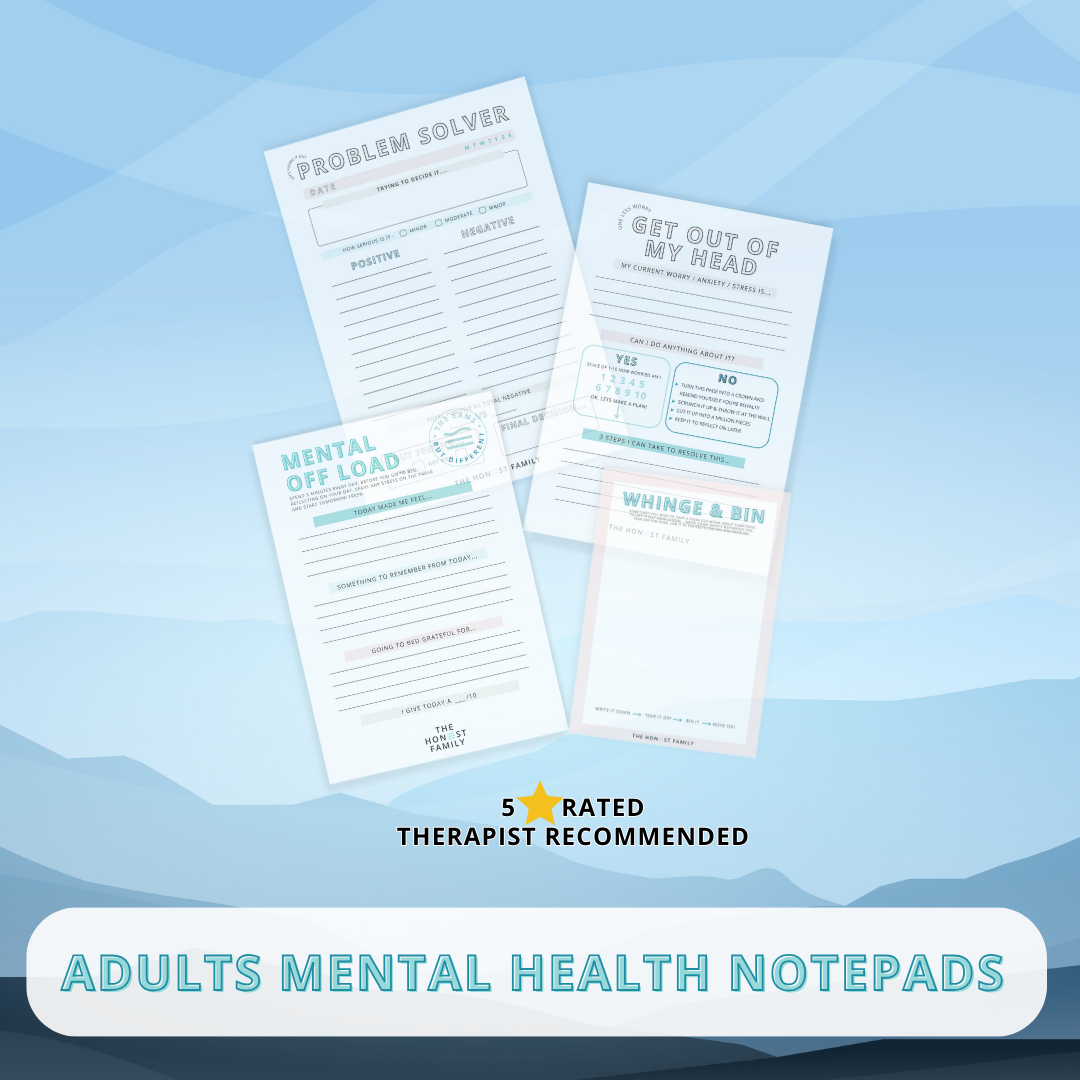
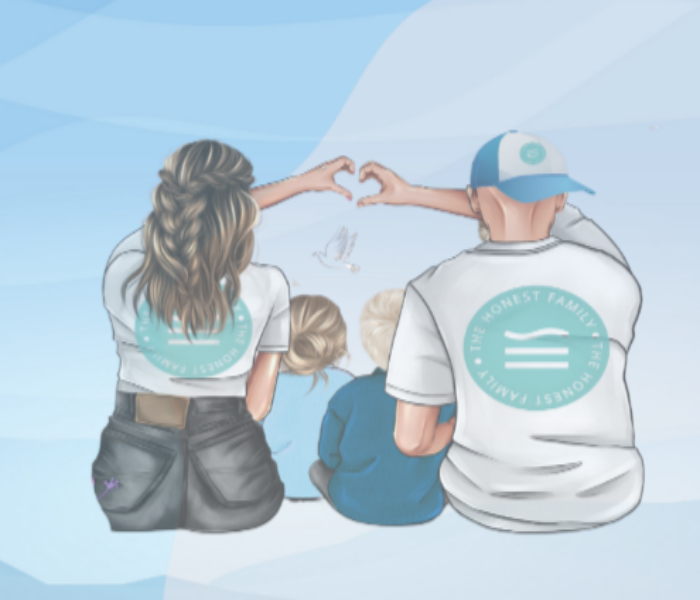
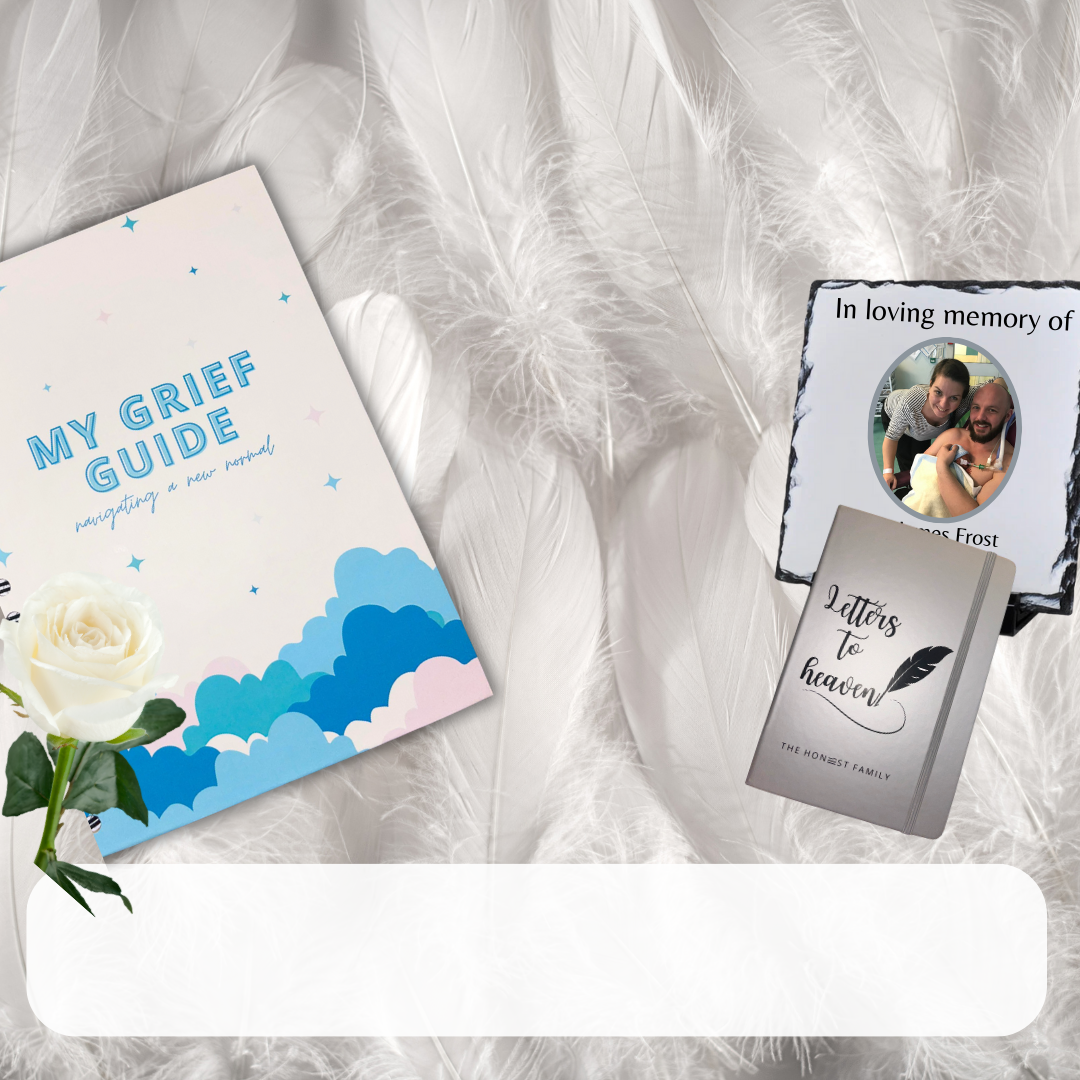
Grief & Loss
We've known grief, so we can't wait for you to see what we've created. A comprehensive 6-month companion, a one-of-a-kind Grief Guide, designed to walk beside you through the darkest of days and the gradual emergence into a new normal.
- Where it all began, The Mental Health Bundle!
- Our first and most popular product, 100's of 5 star reviews over multiple platforms.
- Created by us for us, for when life feels a little heavy.
The Honest Family
Mental Health Notepad Bundle - 5 Star Rated - 4 Notepads - A5 Mental Offload - A5 Get out my Head - A5 Problem Solver - Luxury pen with stylus- - A6 Whinge and Bin - The Honest Family
Share
5.0 / 5.0
(8) 8 total reviews



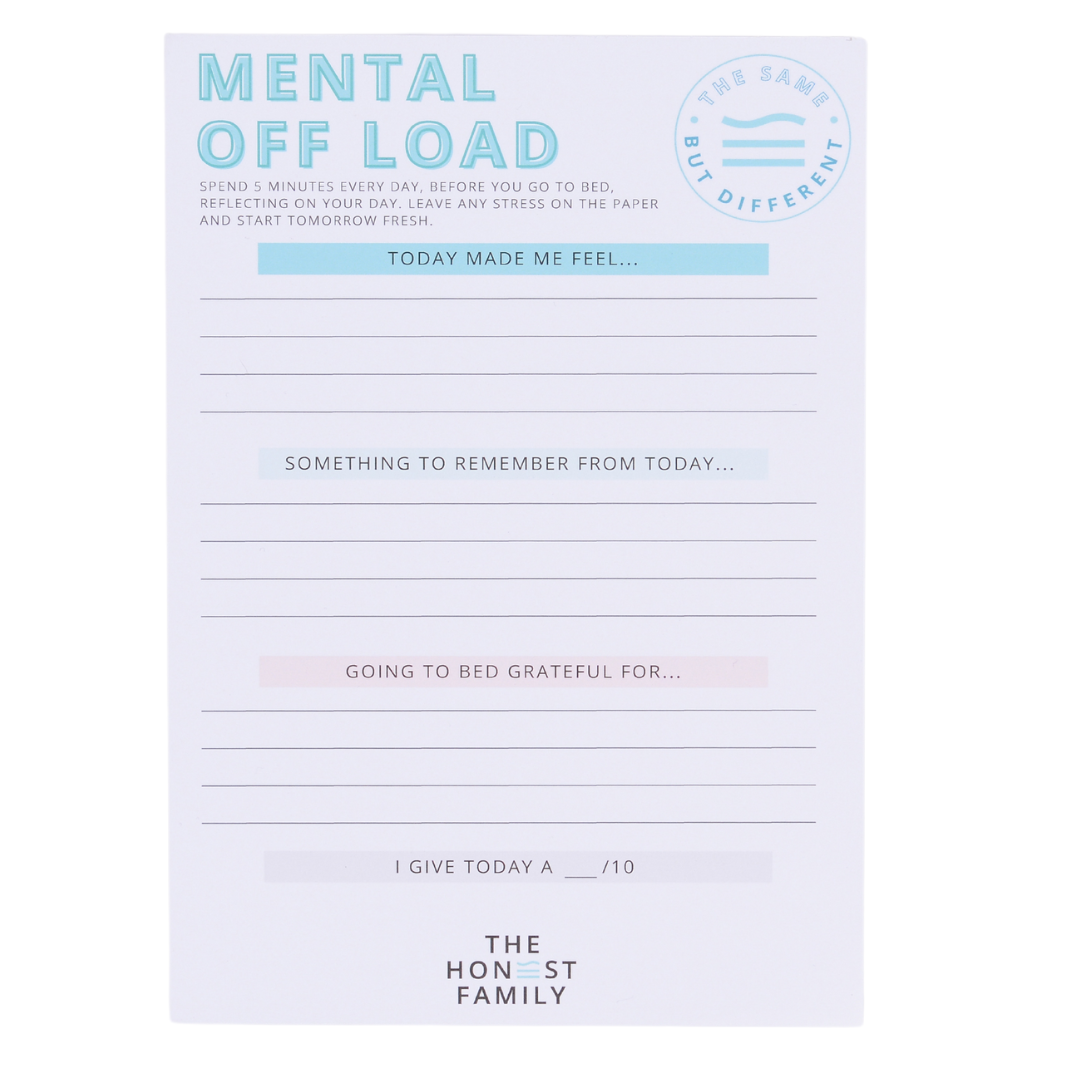
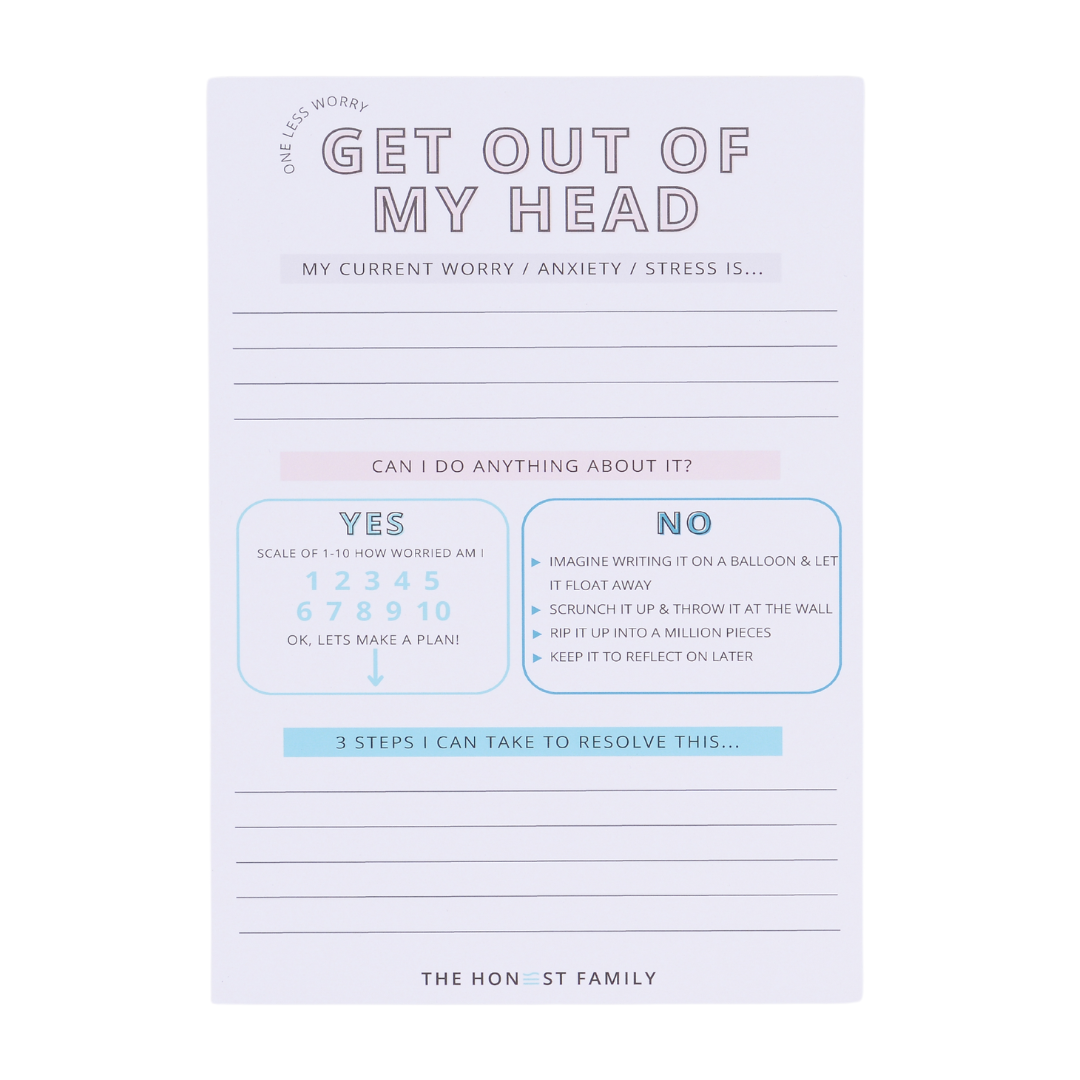
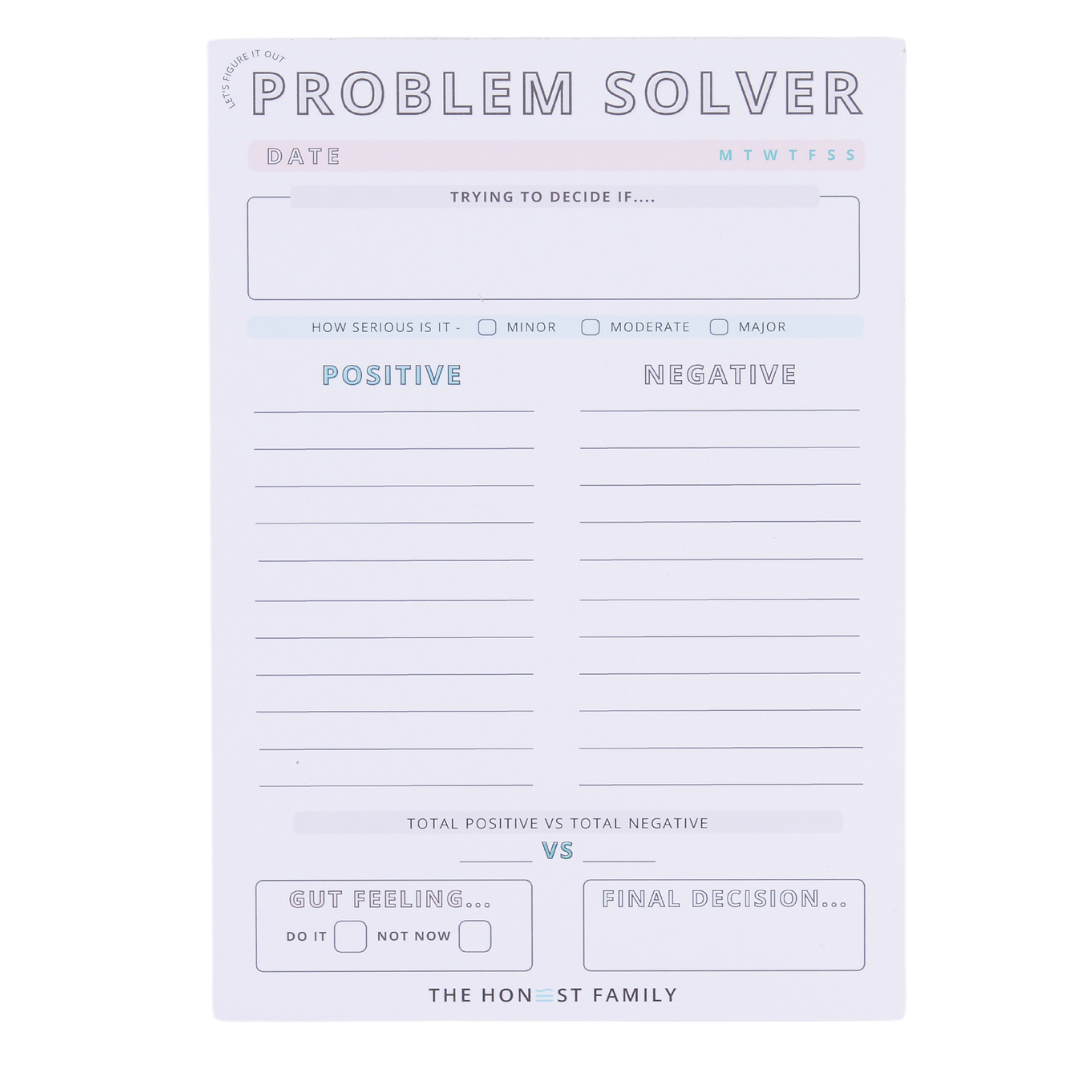

-
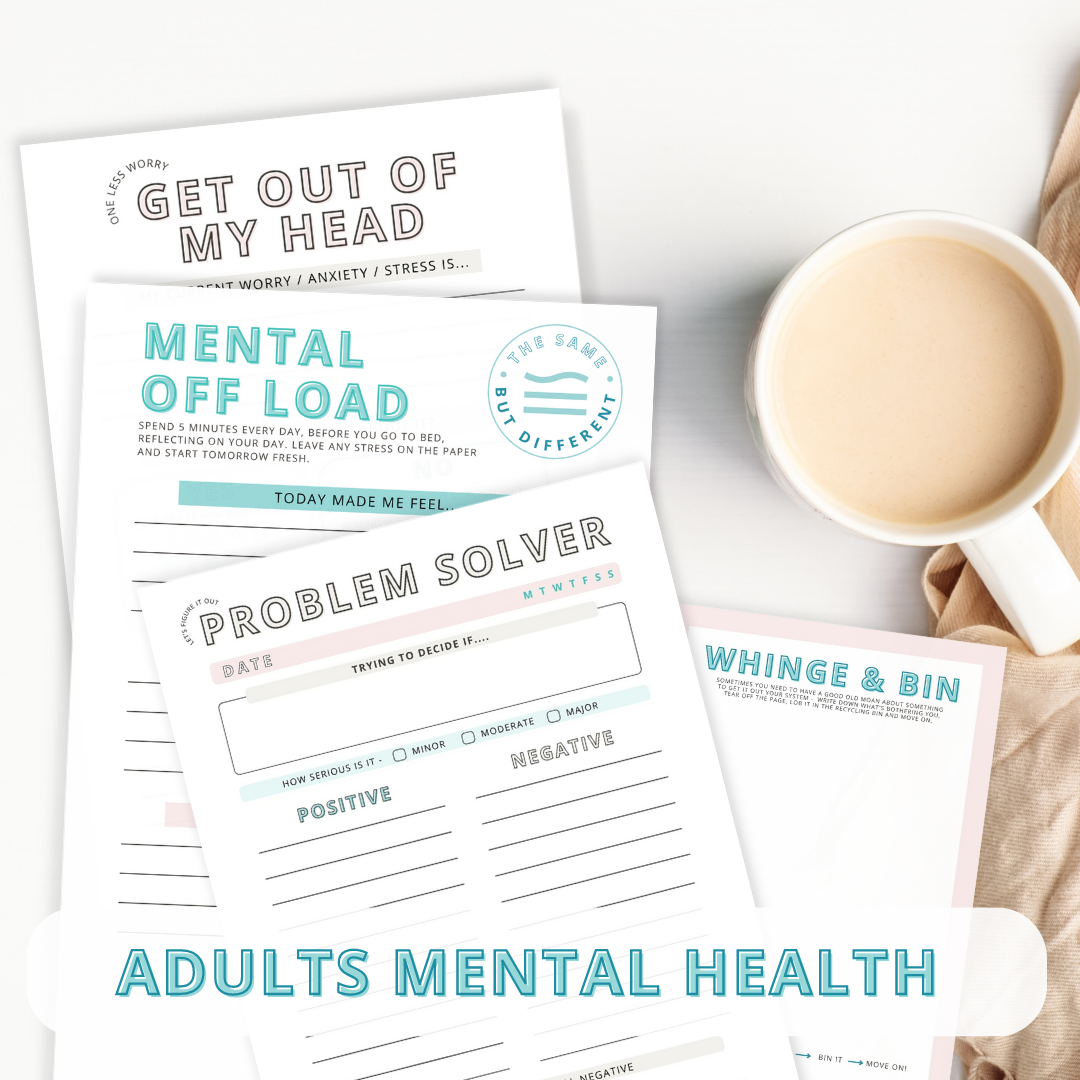
Adults Mental Health
Adults Mental Health - Fantastic notepads to help you prioritise your mental...
-

Kids / Children's / Inclusive Mental Health
Kids / Children's / Inclusive Mental Health Products
-
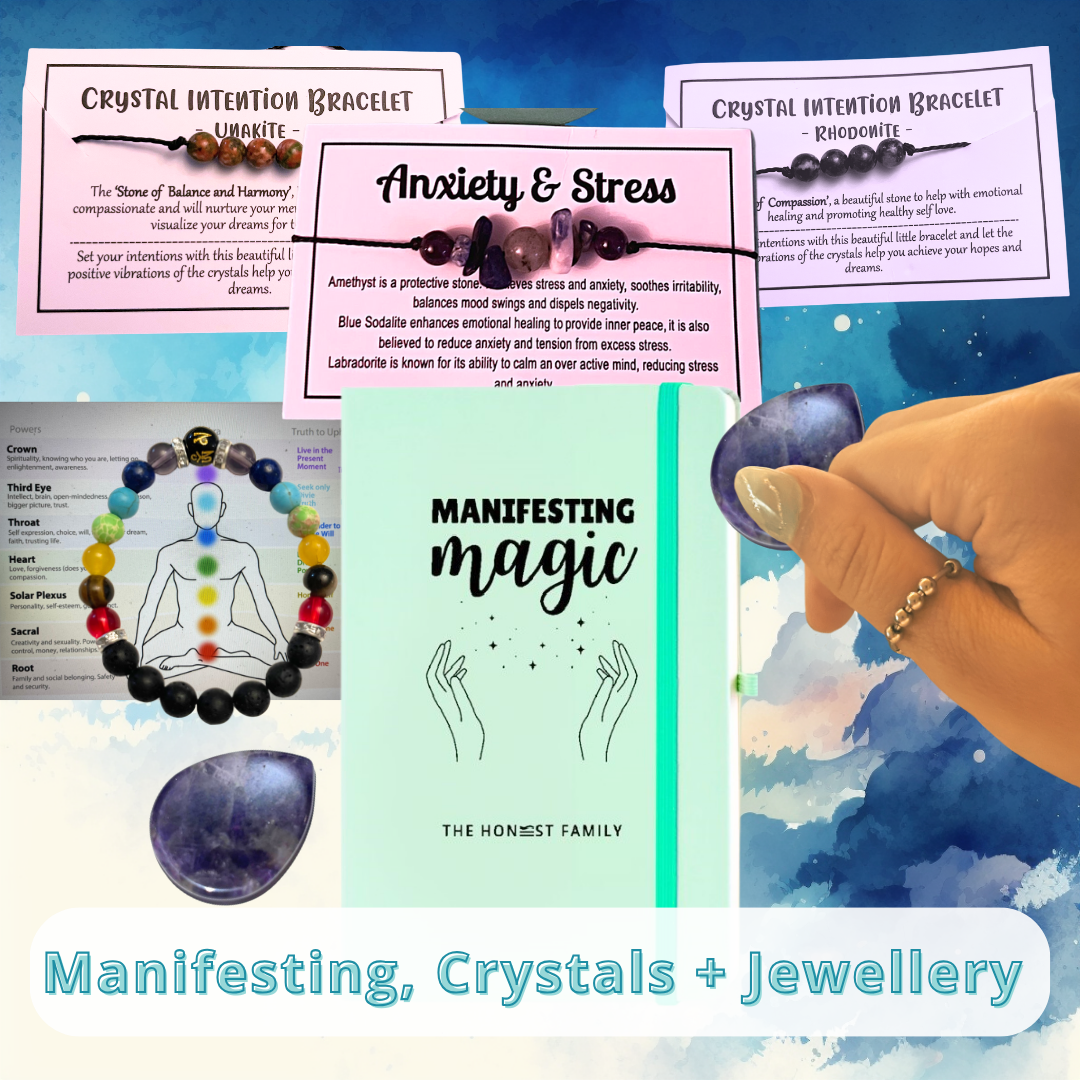
Wellbeing, Crystals and Jewellery
Wellbeing Crystals and Jewellery Anxiety & Stress - Amethyst - Blue Sodalite...
-
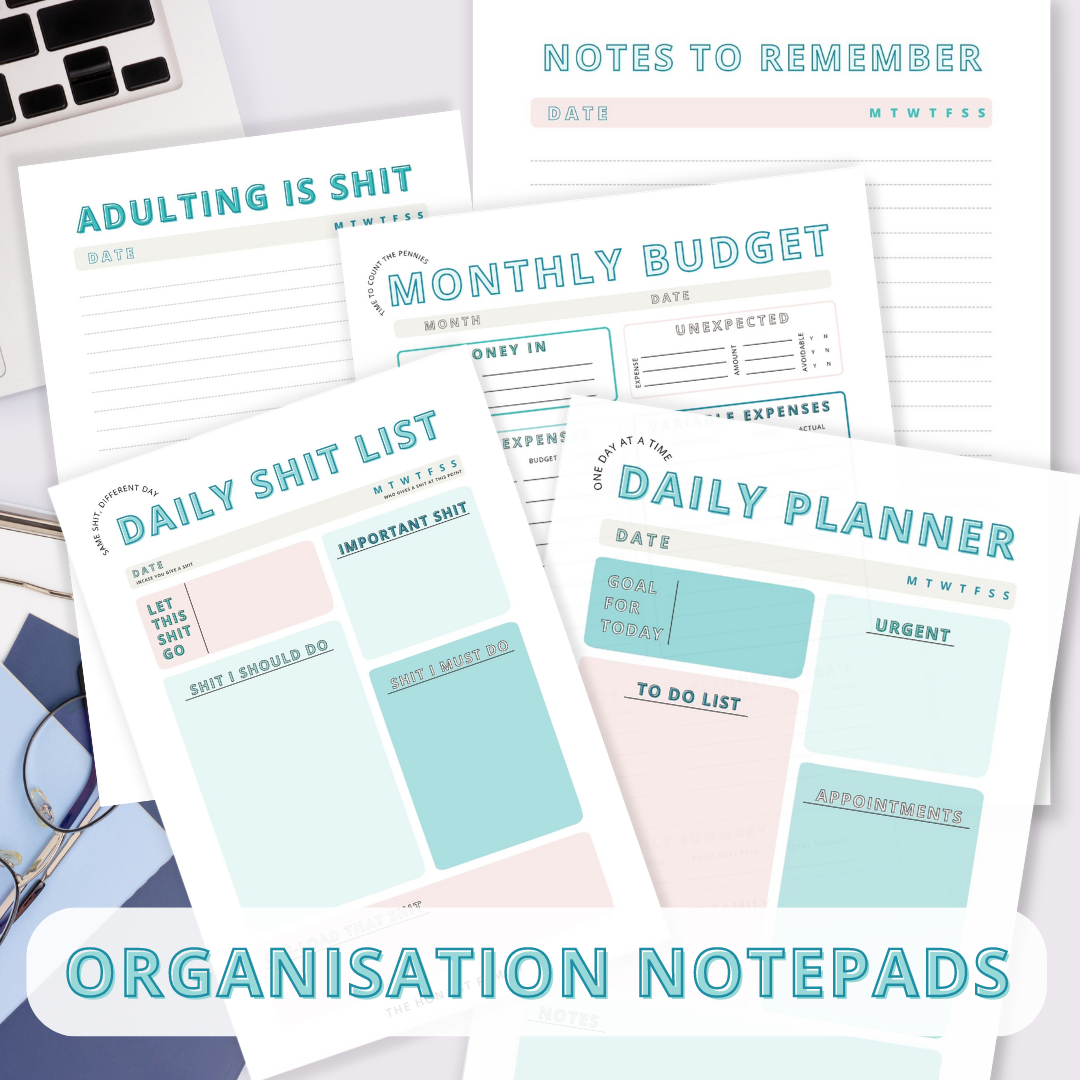
Organisational Notepads
Organisational Notepads - The Pads you need to get organised are in...
-

Sweary Items
Sweary Items - Notepads, Pens, Mugs, gifts
-

Gift Vouchers
🌟 Give the Gift of Self-Care and Support with The Honest Family...
Mental Health
Do you have anything to help anxiety?
Sure we do.
We don't specify that certain notepads are for anxiety or PTSD but our notepads use CBT style strategies to support people navigate through.
Our notepads are non committed with 50 single pages that can be torn off rathe than a diary.
You can view the notepads HERE
Are mental health issues increasing
It's hard to know if mental health issues are rising or if we are just recognising and speaking about them more.
In previous years people tended to suffer in silence and people now speak more about their struggles meaning it is more normalised to do so.
People often think that mental health struggles are rising and the fact is that there is no up to date data to scientifically say if this is the case or not. The data may also be skewed if asked as the older generation as they would be more likely to say they didn't suffer but they may do so later in life.
How mental health affects physical health?
Mental Health and Physical health are linked, you may not always notice the symptoms of physical health and how they are linked to mental health struggles.
You may identify that you have stomach cramps, clammy hands or sweating but you may not always put together that those feelings are linked to stress, anxiety or frustration.
We created the Lighten The Load notepad which gives you the ease of tick boxes to identify the connection between mental and physical health. You can view it HERE
How to spot mental health struggles at work
Spotting signs of mental health struggles at work can be difficult. Not everyone shows the same signs and symptoms but here are some key ones you can look out for.
- increase in sickness absence or being late to work
- appearing tired, anxious or withdrawn
- changes in the standard of their work or focus on tasks
- being less interested in tasks they previously enjoyed
- changes in usual behaviour, mood or how the person behaves with the people they work with
It can be even harder to spot if employees are working from home so it is important to make sure you are providing support and resources for people who are struggling.
We have a range of notepads and we have any 4 for £20 on mix & match notepads so you can chose whichever ones you think would suit best.
If you'd like to buy in large quantities please reach out to us and we will create a bespoke quote for you.
Grief Support
What do i say when someone is grieving?
Grief is hard to navigate and understand, sometimes it can make people feel awkward and like they don't know what to say so they don't say anything. They can seem as if you don't care. It is better to say "I'm sorry I don't know what to say" rather than saying nothing.
We've written a blog post on How not to be awkward in grief HERE
Can grief and loss really lead to depression?
Yes, absolutely. Grief and loss are powerful emotional experiences that, while natural responses to significant life changes, can sometimes evolve into clinical depression. The key lies in the intensity and duration of the emotional impact.
While grief is a normal and necessary process that allows individuals to cope with loss, depression represents a more prolonged and severe manifestation of these emotions.
Grieving involves a series of stages, as identified by Elisabeth Kübler-Ross, including denial, anger, bargaining, depression, and acceptance. It's essential to recognise that these stages are not linear or universal, and individuals may experience them in varying sequences and intensities.
When grief becomes persistent, overwhelming, and disrupts daily functioning for an extended period, it can transform into depression. The boundary between grief and depression can be subtle, as both share common symptoms such as sadness, sleep disturbances, appetite changes, and difficulty concentrating.
It's crucial to pay attention to the duration and intensity of these symptoms. Grief tends to soften and evolve over time, allowing individuals to adapt to the new reality, while depression persists and has a more profound impact on overall well-being.
If you are struggling, you should reach out to a medical practitioner or someone you trust; if you need support, you can call SAMARITANS on 116 123.
Can you experience grief for a pet?
Losing a pet can be really tough. Pets are like family, and when they're gone, it's totally normal to feel a deep sense of grief. You might miss their cuddles, playful moments, and the joy they brought into your life.
It's okay to feel sad, and everyone copes differently. Remembering the good times, creating a little memorial, or talking to friends who understand can help. Losing a pet is like losing a friend, and it's okay to take the time you need to grieve and remember the special moments you shared.
Quotes about grief
Indeed, here are some non-religious quotes that offer insights and comfort about grieving:
1. "Grief is like the ocean; it comes on waves ebbing and flowing. Sometimes the water is calm, and sometimes it is overwhelming. All we can do is learn to swim." - Vicki Harrison
2. "Grief, no matter where it comes from, can only be resolved by connecting to other people." - Thomas Horn
3. "Grieving doesn't make you imperfect. It makes you human." - Sarah Dessen
4. "Grief is the price we pay for love." - Queen Elizabeth II
5. "Grief is never something you get over. You don't wake up one morning and say, 'I've conquered that; now I'm moving on.' It's something that walks beside you every day." - Gwen Flowers
6. "The reality is that you will grieve forever. You will not 'get over' the loss of a loved one; you will learn to live with it. You will heal, and you will rebuild yourself around the loss you have suffered." - Elizabeth Kubler-Ross
7. "Grieving is a journey that teaches us how to love in a new way now that our loved one is no longer with us. Consciously remembering those who have died is the key that opens the hearts, that allows us to love them in new ways." - Tom Attig
8. "The pain of grief is just as much part of life as the joy of love; it is perhaps the price we pay for love, the cost of commitment." - Colin Murray Parkes
These quotes reflect the universal aspects of grief, acknowledging the pain and complexity of the process while highlighting the importance of connection and the enduring nature of love.
What does grief feel like
Grieving is a deeply personal and complex experience, and it can feel different for each individual. Here are some common emotions and sensations associated with grief:
1.Sadness:Profound feelings of sadness and sorrow are often at the core of grief. This can manifest as a heavy heart, a deep ache, or a persistent sense of longing.
2.Numbness: Some people experience a sense of emotional numbness, as if they are detached from their usual feelings. This can be a coping mechanism to protect oneself from overwhelming emotions.
3.Shock and Disbelief:Especially in the early stages of grief, there may be a sense of shock or disbelief, making it difficult to comprehend the reality of the loss.
4.Anger:Grief can evoke feelings of anger or frustration, whether directed at oneself, others, or even the situation. This anger is a natural part of the emotional process.
5.Guilt:Many people feel guilty or question if they could have done more, said more, or been there for their loved ones. Guilt is a common emotion in the grieving process.
6.Physical Sensations:Grief is not just an emotional experience; it can also manifest physically. Individuals may experience fatigue, changes in appetite, sleep disturbances, and even aches and pains.
7.Confusion:Grief can bring about a sense of confusion, making it challenging to concentrate, remember details, or make decisions. This is often referred to as "grief brain."
8.Waves of Emotion: Grieving is not a linear process. Emotions may come in waves, with moments of intense sadness followed by periods of relative calm. These waves can be unpredictable.
9.Yearning: A deep yearning for the presence of the person or thing that was lost is a common aspect of grief. This can manifest as a desire to see, hear, or be with the person again.
10.Loneliness:Grief can be an isolating experience. Even in the presence of others, there may be a profound sense of loneliness as the individual grapples with their unique emotions.
It's important to emphasize that there is no "right" way to grieve, and everyone's experience is valid. Grieving is a process that unfolds over time, and seeking support from friends, family, or professionals can be essential in navigating its challenges.
Do you know of any bible verses that may bring comfort in grief
Certainly, many people find comfort in turning to the Bible during times of grief. Here are a few verses that offer solace and encouragement:
- Psalm 34:18 (NIV):"The Lord is close to the brokenhearted and saves those who are crushed in spirit."
- Matthew 5:4 (NIV):"Blessed are those who mourn, for they will be comforted."
- Psalm 147:3 (NIV):"He heals the brokenhearted and binds up their wounds."
- Isaiah 41:10 (NIV):"So do not fear, for I am with you; do not be dismayed, for I am your God. I will strengthen you and help you; I will uphold you with my righteous right hand."
- John 14:27 (NIV):"Peace I leave with you; my peace I give you. I do not give to you as the world gives. Do not let your hearts be troubled and do not be afraid."










